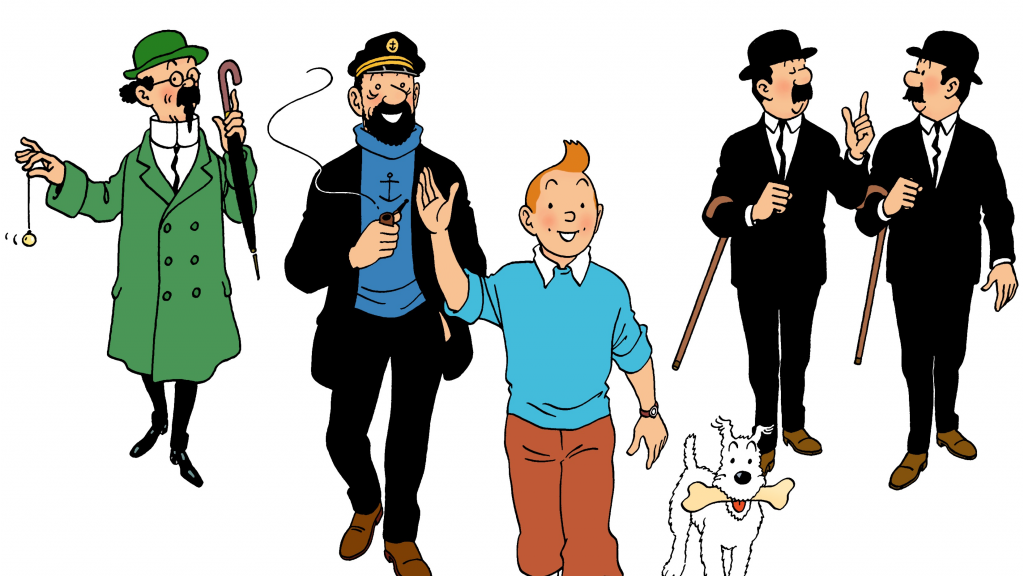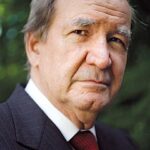Blog Post
War on Whimsy: No, Tintin isn’t gay
By Jonathon Van Maren
This column was first published on January 10, 2017.
One of the most tiresome things about the rainbow revolutionaries is their incessant war on whimsy.
It is not enough that revisionist hack historians are transposing today’s hypersexualized climate onto male friendships of the past, insisting that Abraham Lincoln must have been gay or “bi-sexual” or that Jonathan and David must have been lovers. Following in their footsteps, the post-modernists in the field of literature have decided that the fictional characters of the literary canon are also in need of a rewrite. Characters created in the Judeo-Christian context are now being recast to create heroes for the soulless Sexual Revolution. Anne of Green Gables and her “bosom friend” Diana, they insist, must have been lesbian lovers—and to boot, orphan Anne would have been an abortion activist had she been alive! (My wife’s brilliant response to that particular proposal was quoted in the National Post.) Shakespeare is also full of homoeroticism, apparently—especially if you are the type of academic who has never relinquished the adolescent ability to see everything as sexual.
And now, I’ve discovered, it’s been “revealed” that the beloved European adventurer Tintin is gay, as well. Tintin, the international crime-fighter who travels the globe with his trusty dog Snowy and a colorful cast of characters including old sea dog Captain Haddock and the absent-minded Professor Cuthbert Calculus, was created by Hergé, the penname used by Belgian artist Georges Remi. No fictional character, it seems, is safe from the sexual iconoclasm and literary vandalism of those who wish to project their sexual motivations on everything and everyone.
Like many children of a European background, I grew up voraciously reading the Tintin albums. I was thus interested when I saw that one of my favorite blogs, The Imaginative Conservative, had posted an essay referring to Tintin as “The True European.” From there, I ended up reading Catholic journalist Denis Tillinac’s analysis of Tintin, who notes: “He’s a solitary adventurer. The heroes of the Left—say Guevara—are heroes subject to a revolutionary project, hooked on a doctrine and responding to the necessities of strategy. Tintin is a solitary adventurer animated by the evangelical message: the widow and the orphan; by the values of chivalry. He acts as a knight of modern times by knowing—another theme of the Right—that man is not good and never will be.”
Like all durable fictional characters who succeed in capturing the imagination of millions, the Tintin stories are loved because they show the never-ending battle between good and evil, and good nearly always wins.
But then, unfortunately, I clicked on the Business Insider column that explained – “revealed,” per the headline – that Tintin was gay. Now, I realize that there is a whiff of the absurd about all of this. Tintin is a fictional character who was created in the imagination of Georges Remi. The idea that a fictional character has any life at all outside of the pages of the work of their creator is the stuff of childhood imagination. But perhaps because the sexualisation of everything is beginning to become so tiresome, let me take a few moments to explain why this literary “theory” is as stupid as it is absurd.
The “theory” was put forward by British gay rights activist Matthew Parris, and is broken down by Business Insider thusly:
Background and origins: A total mystery. Tintin never talks about his parents or family, as though trying to block out the very existence of a father or mother. As psychologists will confirm, this is common among young gay men, some of whom find it hard to believe that they really are their parents’ child. The “changeling” syndrome is a well-known gay fantasy…
It is not, however, a “mystery” that Tintin’s family is not mentioned to anyone who is familiar with the background of his creator. As Georges Remi’s biographers will tell you, there is much autobiographical content within his work, as there is with any author’s work. (Tom McCarthy’s Tintin and the Secret of Literature is probably the best such biography.) Here, in fact, are the simple autobiographical details that explain the absences Parris uses to project his proclivities:
Georges Rémi’s background and upbringing had not always been happy. His grandmother had given birth to twins (no, not called Thomson and Thompson), but she never really knew their father. She later married Philippe Rémi, a neighbour, who became a “pseudo-father” to the twins until she died in 1901, six years before Georges was born. Philippe, his “pseudo-grandfather”, survived her until 1941 and yet Hergé never met him.
Growing up, he was not close to his younger brother Paul either, and tortured private letters and certain family sources allege that he may have been abused by his uncle, Charles Arthur, 10 years his senior. He once wrote, “Not everyone is lucky enough to be born an orphan.” Later, he was unable to have children, as he had been made sterile accidentally during treatment for boils. It’s no accident that Tintin and the other main characters have no parents, partners, children or close family relationships. Even the Thom(p)sons are not twin brothers; after all, their surnames are different.
Right. So that takes care of that.
Next, Parris claims that Tintin’s close friendship with Captain Haddock must be of a homosexual nature, because (as I’ve written before), true friendship seems to be something inconceivable to some gay activists. The truth, as Remi told an interviewer, was that “women have nothing to do with a world like Tintin’s, which is a world of male friendship.” Parris points with great fanfare to the lack of female characters in the Tintin adventures, as if this is somehow hugely significant. As far as that goes, Georges Remi was raised Catholic and felt enormously guilty for several affairs he pursued over the years, one of which culminated in Remi leaving his first wife for Fanny Rodwell, a fellow artist. He never managed to calm his conscience over this. The influence of his religious upbringing was far too strong. One writer explains it this way:
Any hints of sexuality are largely absent too from the Tintin books, apart from the unwanted attention Bianca Castafiore gives whisky-loving sea-dog Captain Haddock. As for Hergé, he privately grappled with sexual guilt for years. He admitted that he had quit his first troop of “boy scouts without God” out of disgust at the brawling and group masturbation into which older boys lured their juniors. What would Baden-Powell have said?
It takes the very briefest of glances at life and work of Georges Remi to answer the innuendo-laden questions that Parris presents as irrefutable proof that Tintin, a fictional character, was gay. Each of his so-called evidences have very simple explanations, explanations readily available to anyone interested in the story-teller behind the stories, which Parris obviously is not. Like the rest of the sexual revolutionaries, he is trying to hijack beloved characters from children’s literature to further his sexual agenda.
The only reason I’ve bothered to write a response to such a nonsensical issue is because the constant attempts to retroactively sexualize literature – especially children’s literature – is becoming wearisome. This is an attempt by the sexual revolutionaries to colonize childhood. That is why the LGBTQ lobby has been pushing Disney for so long to portray a gay character in one of their children’s films. That is why activists launched a petition begging the children’s show Sesame Street to announce that Ernie and Bert were gay, eliciting a rather frosty response in which the creators reminded the activists that the characters were puppets, “created to teach preschoolers that people can be good friends,” and furthermore, that puppets do not exist below the waist.
Anne of Green Gables wasn’t a lesbian, as L.M. Montgomery would readily tell you. Tintin wasn’t gay, as Georges Remi would assure you. Pre-schoolers don’t need to be introduced to homosexual puppets. These activists need to leave sex out of childhood, and stop trying to force their lifestyles into the whimsy and innocence of children’s stories.








